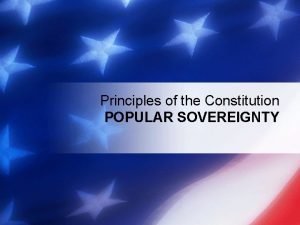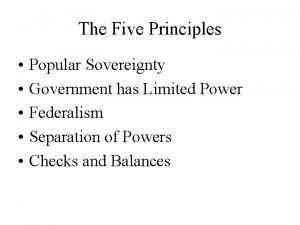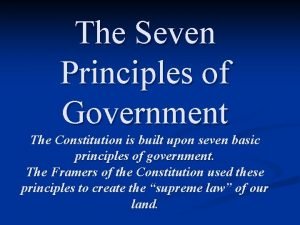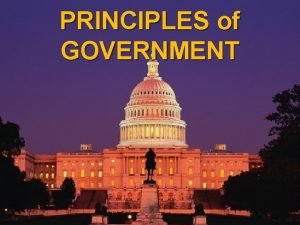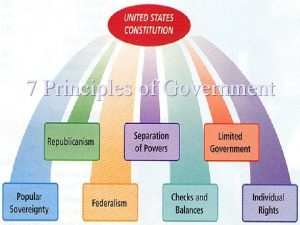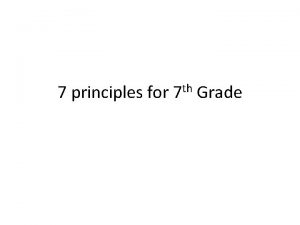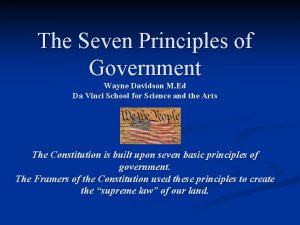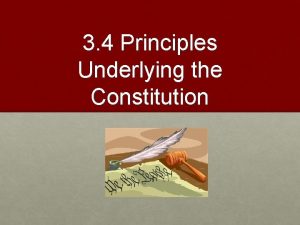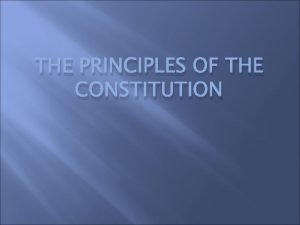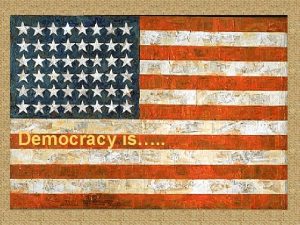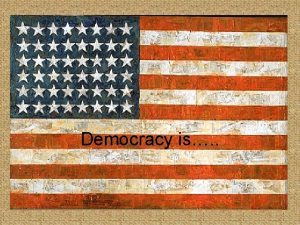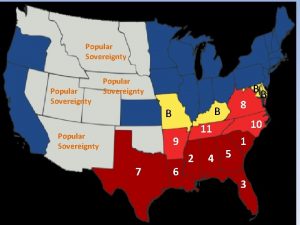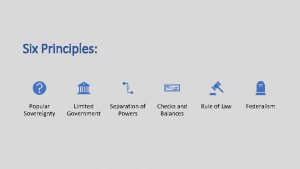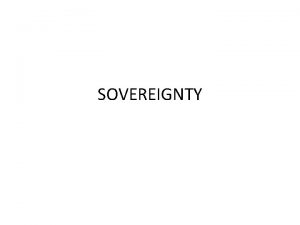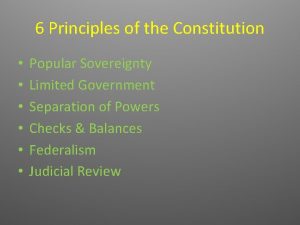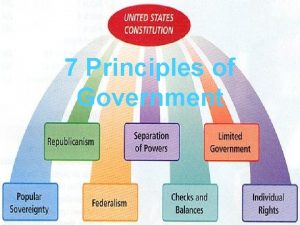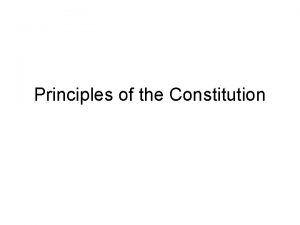The Five Principles Popular Sovereignty Government has Limited












- Slides: 12

The Five Principles • • • Popular Sovereignty Government has Limited Power Federalism Separation of Powers Checks and Balances


Popular Sovereignty • "We the people…“ • The Constitution • It’s the idea that the power of this government • This is the idea of majority comes from "We the rules. Whether it’s a vote People", that the for the President of the American government, United States or the our government, is ruled presidency of your class, by its people through their the one with the most votes wins. But it is more than that.







Exclusive Powers of the National Government • Under the Constitution, powers reserved to the national government include: • Print money (bills and coins) • Declare war • Establish an army and navy • Enter into treaties with foreign governments • Regulate commerce between states and international trade • Establish post offices and issue postage • Make laws necessary to enforce the Constitution

Exclusive Powers of State Governments • • Powers reserved to state governments include: Establish local governments • Issue licenses (driver, hunting, marriage, etc. ) • Regulate intrastate (within the state) commerce • Conduct elections • Ratify amendments to the U. S. Constitution • Provide for public health and safety • Exercise powers neither delegated to the national government or prohibited from the states by the U. S. Constitution (For example, setting legal drinking and smoking ages. ) •

Powers Shared by National and State Government • • Shared, or "concurrent" powers include: Setting up courts • Creating and collecting taxes • Building highways • Borrowing money • Making and enforcing laws • Chartering banks and corporations • Spending money for the betterment of the general welfare • Taking (condemning) private property with just compensation
 Popular sovereignty in the constitution examples
Popular sovereignty in the constitution examples Popular sovereignty
Popular sovereignty Unalienable definiton
Unalienable definiton Popular sovereignty
Popular sovereignty Popular sovereignty
Popular sovereignty Popular sovereignty definition
Popular sovereignty definition Popular sovereignty definiton
Popular sovereignty definiton Popular sovereignty poem
Popular sovereignty poem Popular sovereignty
Popular sovereignty Popular sovereignty
Popular sovereignty Popular sovereignty
Popular sovereignty Political cartoons democracy
Political cartoons democracy Direct democracy cartoon
Direct democracy cartoon
